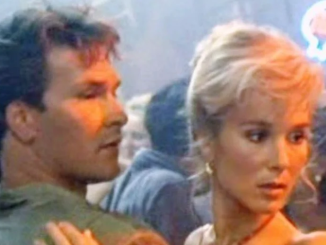Trypophobia is a relatively lesser-known psychological phenomenon characterized by an intense aversion or fear of clustered patterns of small holes, bumps, or irregular shapes. While not officially recognized as a distinct mental disorder in the Diagnostic and Statistical Manual of Mental Disorders (DSM-5), trypophobia has gained attention in recent years due to its prevalence and the emotional distress it can cause in individuals who experience it.
People with trypophobia often react strongly to images or objects that exhibit repetitive and closely packed small holes, such as lotus seed pods, honeycombs, or certain types of coral. The term “trypophobia” itself is derived from the Greek words “trypo,” meaning “hole,” and “phobia,” indicating an irrational fear. It’s important to note that trypophobia is not limited to specific shapes or textures; it encompasses a wide range of stimuli, and triggers can vary from person to person.
The fear response associated with trypophobia may manifest as feelings of discomfort, anxiety, nausea, or even panic attacks. Some individuals may go to great lengths to avoid situations or objects that could trigger their trypophobia, impacting their daily lives. While the exact cause of trypophobia remains unclear, researchers speculate that it may be linked to evolutionary factors, as some dangerous animals and plants exhibit similar patterns in nature.
Social media and the internet have played a significant role in popularizing trypophobia, with numerous online communities sharing images and discussions related to this phenomenon. The widespread dissemination of trypophobic triggers has led to increased awareness and recognition of this condition. However, it’s crucial to approach the topic with sensitivity, as exposure to triggering images can genuinely distress individuals who experience trypophobia.
Despite its prevalence, trypophobia remains an area of ongoing research, and professionals in psychology and psychiatry continue to explore its origins, manifestations, and potential treatments. Understanding trypophobia can contribute to more compassionate and informed discussions about mental health, promoting empathy and support for those who grapple with this unique fear.
Entitled Couple Took My Premium Seat on the Plane – I Taught Them a Lesson and Turned It into a Profit

We’ve all been there—settling into a flight, ready for the journey ahead, when suddenly, something goes wrong. For me, that something was an entitled couple who thought they could bully me out of the premium seat I had carefully selected. Little did they know, they were messing with the wrong person. Here’s how I turned an infuriating situation into a satisfying victory and even walked away with a profit.
I had gone out of my way to secure a prime aisle seat with extra legroom, knowing it would make the long flight more bearable. As I settled in, feeling content with my choice, I noticed a couple approaching. At that moment, I had no idea that this interaction would lead to a lesson in standing up to entitlement.
The woman, dressed in designer clothes and exuding an air of entitlement, stopped next to me without so much as a greeting. Her husband, just as arrogant, stood behind her as she demanded that I switch seats with her. She claimed she had accidentally booked the wrong seat and couldn’t possibly sit away from her husband. Her tone made it clear that this wasn’t a polite request—it was an expectation.
I was taken aback by the audacity of her demand. When I hesitated, she rolled her eyes and dismissed me with a scoff, claiming that I didn’t really need the extra space. Her husband chimed in, urging me to be “reasonable,” as if I was the one being difficult. The entitlement was overwhelming, and I could feel the eyes of other passengers on us.
Rather than escalate the situation, I decided to avoid a confrontation. With as much calm as I could muster, I handed over my boarding pass and sarcastically wished them well in my seat. The woman snatched the ticket from my hand with a muttered insult, while her husband smirked, clearly feeling victorious. But as I walked away, my irritation grew—and so did my resolve to turn this situation around.
As I reached the middle seat in row 12, where I had been relegated, a flight attendant intercepted me. She had witnessed the exchange and informed me that the couple had tricked me out of my seat—they were both supposed to be sitting in row 12. The revelation was infuriating, but I wasn’t about to let them get away with it.
I smiled at the flight attendant and assured her that I had a plan. While the middle seat wasn’t as comfortable as the premium one I had given up, I knew it would be worth it. I decided to let the couple think they had won, all the while preparing to turn the tables on them.
About an hour into the flight, once things had settled down, I signaled for the flight attendant and asked to speak with the chief purser. I calmly explained the situation, detailing how the couple had deceived me into switching seats. The purser listened attentively and thanked me for bringing it to her attention, promising to handle it.
A few minutes later, the purser returned with an offer: I could either return to my original seat or be compensated with a significant amount of airline miles—enough to upgrade my next three flights. I chose the miles, knowing they were worth far more than the difference between premium and economy on this flight.
As the flight continued, I noticed activity around row 3, where the couple was seated. The purser, accompanied by another flight attendant, confronted them about their deceit. The look on their faces was priceless as they were informed that their behavior violated airline policy. The purser even mentioned the possibility of them being placed on the no-fly list pending an investigation.
In a desperate attempt to defend herself, the woman blurted out that they weren’t even married—she was his mistress, and they were having an affair. The situation had gone from infuriating to downright bizarre, but I couldn’t help but feel a sense of satisfaction as I watched their smug expressions crumble.
As we landed and I gathered my belongings, I couldn’t resist one last glance at the couple. Their faces were a mix of anger, humiliation, and fear as they faced the consequences of their actions. Meanwhile, I walked through the airport with a sense of triumph, knowing that I had not only stood up to bullies but had also come out ahead.
In my 33 years of life, I’ve learned that sometimes, the best way to get even isn’t to make a scene but to patiently wait for those who think they’ve won to realize just how badly they’ve lost. This experience was a perfect example of that principle in action.
In the end, my encounter with the entitled couple on the plane wasn’t just about a seat—it was about standing up for myself and turning a negative situation into a positive one. By staying calm and thinking strategically, I was able to teach them a lesson they won’t soon forget and walk away with a profit. It’s a reminder that sometimes, the best victories are the ones where you don’t just win—you win on your own terms.



Leave a Reply